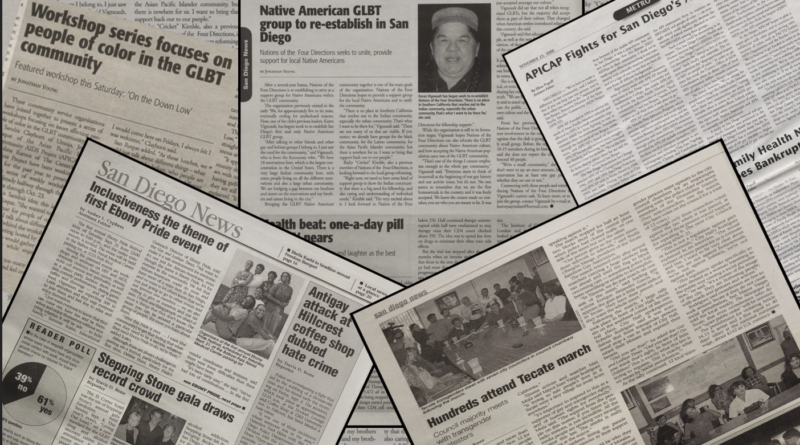Lesser-Known Legacies: LGBTQ History Uncovered
By Nicole Verdes
We are always so excited to kick off Pride Month here in San Diego; this year is no exception. As we come together to celebrate our vibrant community, we are reminded of the individual and collective journey we have all been on. This year’s theme, ‘Making History Now,’ is a powerful reminder that each of us plays a crucial role in shaping our collective future.
The Stonewall Riots, often hailed as the catalyst for the modern LGBTQ+ rights movement, symbolize a pivotal moment when our community collectively rose against systemic oppression and demanded visibility and equality. However, it’s vital to recognize that Stonewall was not an isolated incident but part of a broader tapestry of resistance. Events such as the Compton’s Cafeteria Riot in San Francisco and the Dewey’s lunch counter sit-ins in Philadelphia also marked significant moments of defiance against the pervasive discrimination faced by LGBTQ+ people. These lesser-known acts of rebellion underscore the resilience and courage of our community long before Stonewall became a symbol. By acknowledging and celebrating these other instances of resistance, we honor the full scope of our liberation struggle, recognizing that the fight for equality has always been fueled by countless acts of bravery across diverse contexts and communities. This comprehensive understanding enriches our historical narrative and empowers us to continue the legacy of those who fought for justice in every corner of our movement.
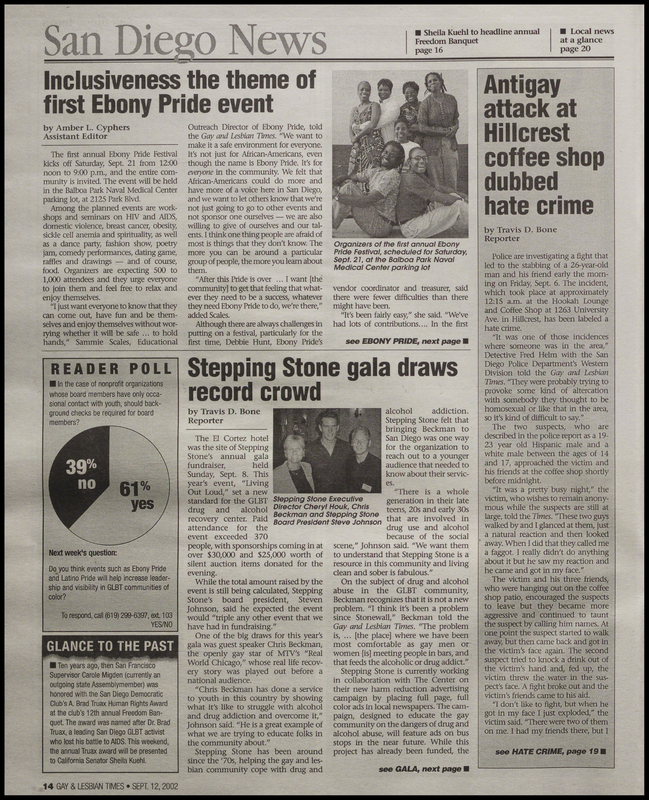
Nevertheless, we do have the activists at Stonewall to thank for Pride, which has evolved in various forms over the years, reflecting the diverse and dynamic nature of the LGBTQ+ community. However, a discussion always flares up during Pride month, focusing on who is and isn’t included or what Pride should or shouldn’t be. It’s crucial to remember and acknowledge the historical significance of our past and the importance of supporting and uplifting the stories of those who aren’t always as well-known. For LGBTQ+ folks, Pride is a celebration and a powerful assertion of identity and resilience. It is a reminder of the ongoing fight against discrimination and violence and a tribute to those who have paved the way for greater acceptance and rights. Activists like Marsha P. Johnson, Sylvia Rivera, and Stormé DeLarverie, who are widely recognized as instrumental in the Stonewall uprising, exemplify the critical role that trans and gender nonconforming individuals have played in the LGBTQ+ movement. But less is known or discussed about people who have played significant roles in the global LGBTQ+ movement like Ernestine Eckstine; critical, safe, and sacred places like Casa Susanna; and subversive art that was produced far before it was widely accepted like the Flaming Creaturesfilm.
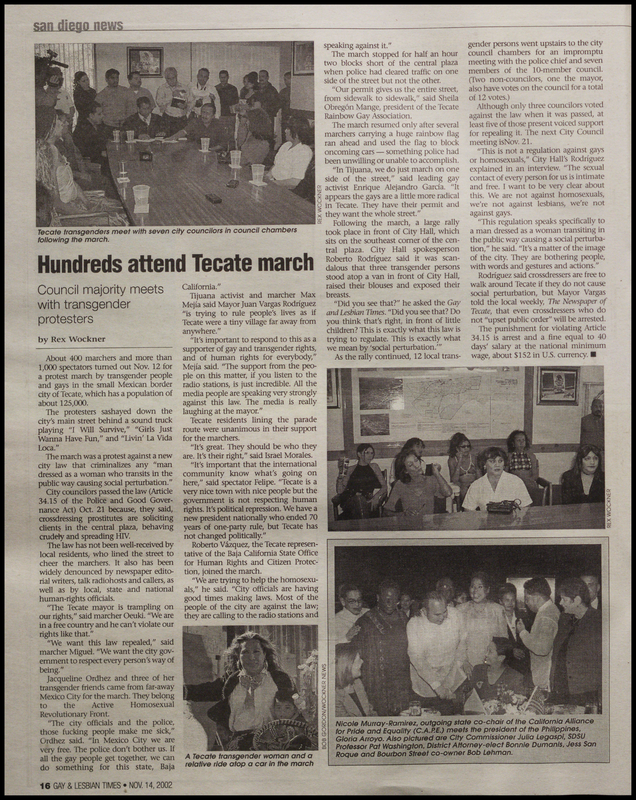
When we talk about history being lesser-known, it’s often a result of it being lesser-acknowledged and, subsequently, lesser-valued. Sharing these lesser-known parts of our LGBTQ+ history is not just about interesting stories; they highlight how often parts of our history have been ignored or forgotten. When we talk about systemic oppression as it relates to archival work, we mean that certain voices and experiences have been deliberately silenced or overlooked. By bringing these stories to light, we are challenging that silence and ensuring that as many individual and collective contributions and struggles are recognized and valued. The power dynamics inherent in archiving decisions often reflect broader societal inequities, so our work also involves critically examining and rectifying these imbalances. By doing so, we honor the past and pave the way for a more inclusive and representative historical narrative.
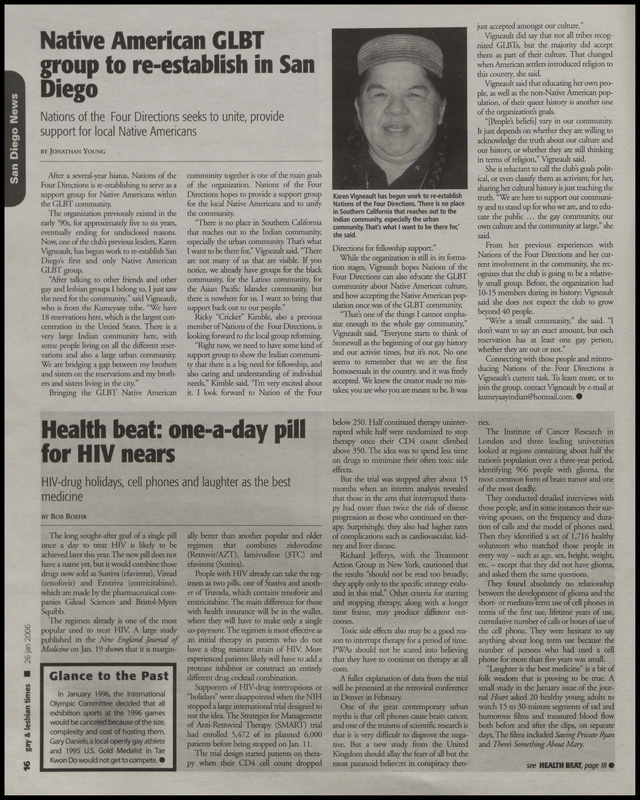
Lambda Archives can be where we reclaim our stories and assert our right to be remembered on our terms. This approach is essential in challenging the oppressive structures that have long sought to silence us and ensure that future generations inherit a history that is rich, diverse, and unapologetically true.
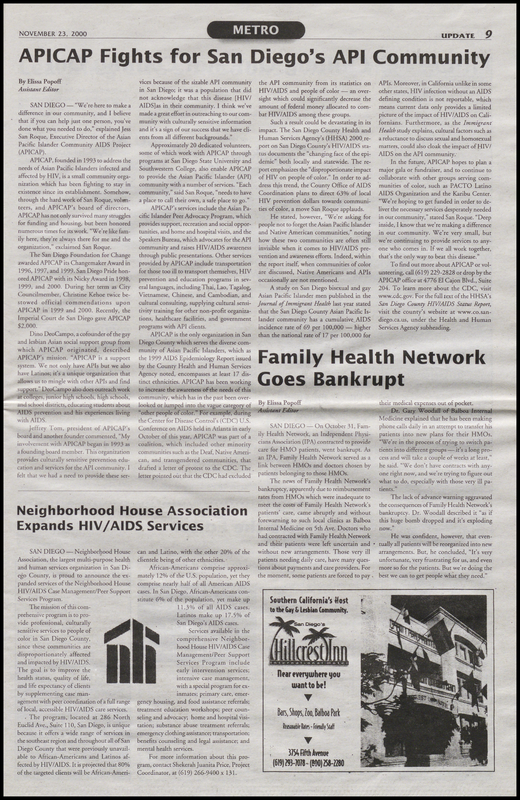
Locally, some names, community organizing efforts, and events you may not have heard before having significantly impacted our local LGBTQ+ community. These include the organizers of the first Ebony Pride; former Executive Director of the Asian Pacific Islander Community AIDS Project (APICAP) Jess San Roque; Two-Spirit lesbian and lifelong advocate for the Indigenous community Karen Vigneault; the leading force behind the Umoja Center Sandra Clayborn; and a protest march organized in response to a harmful cross-dressing law in the city of Tecate.
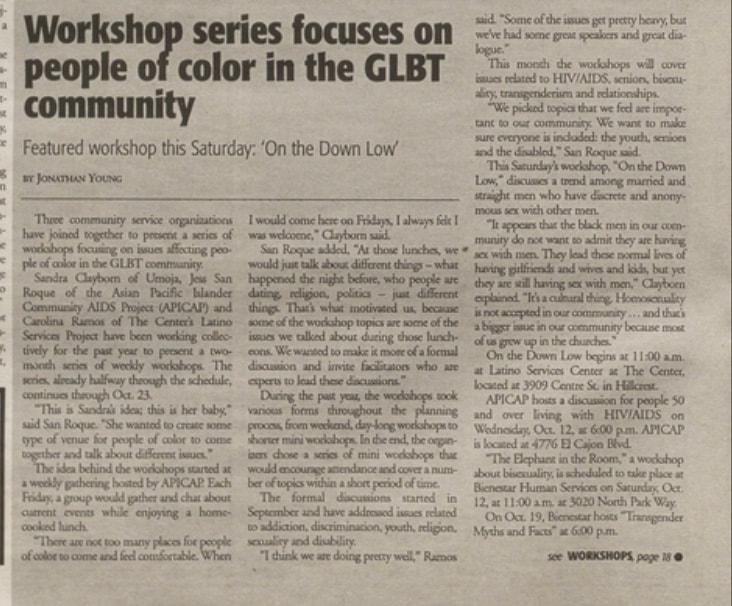
Let’s honor the progress we’ve made, celebrate the diversity that strengthens us, and continue to make history together. Here’s to a Pride month filled with joy, unity, and unforgettable moments!
HAPPY PRIDE, SAN DIEGO!

